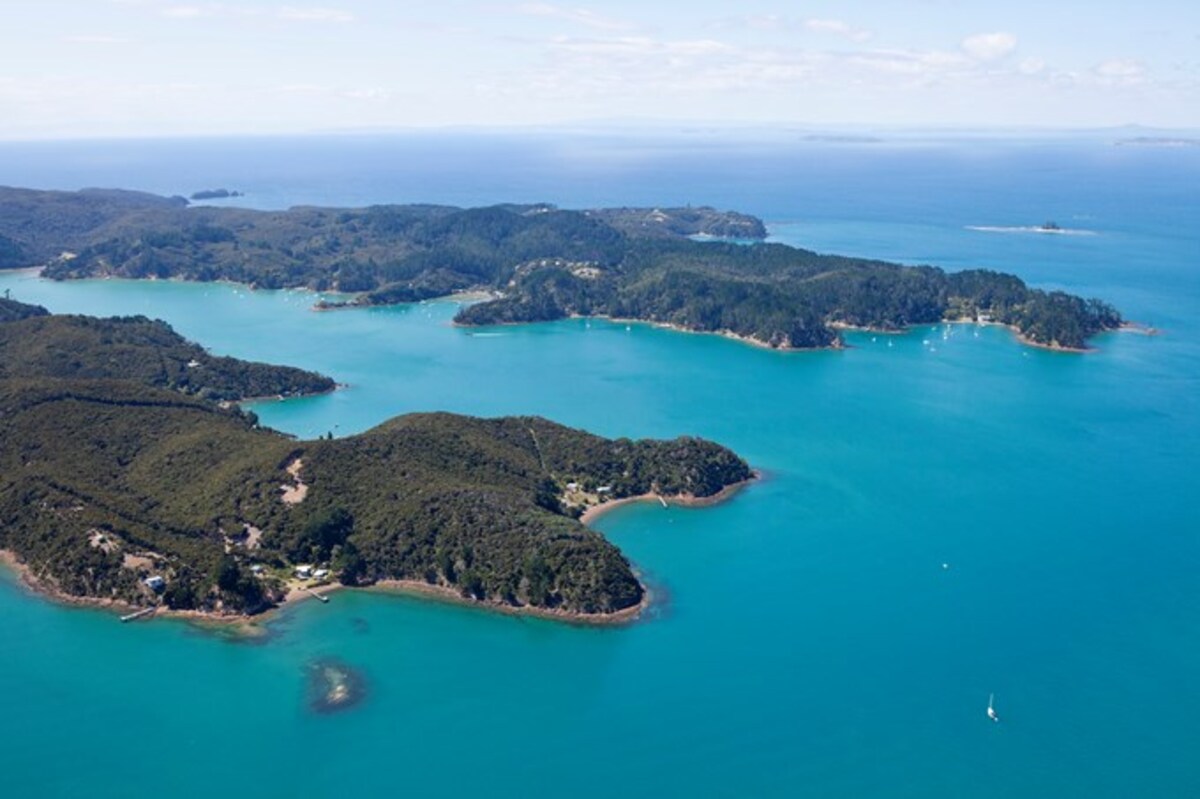NZ Nature Fund Backs Kawau Island Restoration
Staff Reporter
11 November 2024, 10:14 PM
 Kawau Island: A historic Hauraki Gulf destination.
Kawau Island: A historic Hauraki Gulf destination.The Kawau Island restoration project has received a significant boost from the New Zealand Nature Fund (NZNF), enhancing efforts to protect and restore the island's biodiversity.
The initiative, a collaboration between Auckland Council, Manuhiri Kaitiaki Charitable Trust, Predator Free 2050 Ltd, the Department of Conservation, and the Kawau Island community, aims to eradicate browsing pests such as wallabies and possums.
Discussions are also underway for the potential future eradication of stoats and rats.
Just a 40-minute ferry ride from Sandspit, Kawau Island is home to diverse ecosystems, but the presence of invasive species has led to ecological challenges, damaging native flora and fauna.
The project aims to address these issues, ultimately working toward a pest-free island.
The NZ Nature Fund, established in 2000, supports conservation projects across New Zealand, raising funds from private donors to protect endangered species and restore wild areas.
In the past year, the fund raised over $1.8 million for more than 14 projects.
Richard Hills, Chair of the Planning, Environment and Parks Committee, highlighted the importance of public donations for achieving the vision of a pest-free Kawau Island.
“The support from the New Zealand Nature Fund underscores our commitment to protecting Auckland’s natural heritage,” he said.
The project has already secured funding from Predator Free 2050 Ltd, Auckland Council, and the Ministry for Primary Industries, with contributions from local landowners totalling more than $500,000.
The NZNF has set a fundraising target of $2 million to support the project’s delivery costs.
Brett Butland, Landscape Director for Predator Free 2050 Ltd, noted that Kawau Island could become one of New Zealand’s largest inhabited pest-free islands, representing a significant milestone toward a predator-free nation by 2050.
Auckland Council’s Project Lead, Lisa Tolich, stressed the importance of collaboration in such a large-scale project.
“We are grateful for the support from our partners and the local community,” she said.
The project aims to boost populations of nationally and regionally threatened species and support the natural regeneration of native vegetation.
Future stages will focus on eradicating invasive predators, strengthening the ecological resilience of both the island and the Hauraki Gulf.
“This project sets a high bar for community-driven conservation,” said Denis Marshall of NZNF, emphasising the impact of local involvement in achieving ambitious environmental goals.
Watch the video below.




